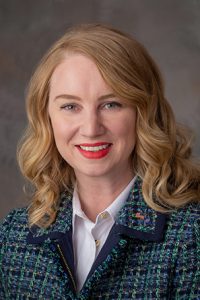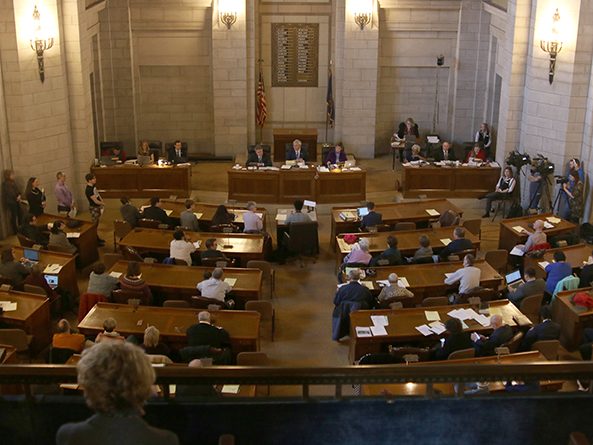Bill would ban conversion therapy
Members of the Judiciary Committee heard testimony Feb. 7 on a bill that would prohibit conversion therapy for any minor child.

The American Academy of Child and Adolescent Psychiatry defines conversion therapy as any intervention purported to alter same-sex attractions or an individual’s gender expression with the specific aim to promote heterosexuality as a preferable outcome.
LB167, introduced by Omaha Sen. Megan Hunt, would prohibit any person credentialed under Nebraska’s Uniform Credentialing Act from advertising or providing conversion therapy to a child under 18.
Fifteen states and the District of Columbia have banned conversion therapy, Hunt said, because the treatment has been proven to be ineffectual and harmful.
“There is a growing body of research that shows that conversion therapy is not rooted in medically sound practices, is unethical and causes substantial harm, especially in adolescents,” she said. “There is no evidence that people can change their sexual orientation or gender identity.”
The bill would prohibit advertising conversion therapy if it proposes to change an individual’s sexual orientation or gender identity, eliminate or reduce sexual or romantic attraction to people of the same gender or states that such therapy is harmless or without risk to patients. A violation of the bill’s provisions would be considered a deceptive trade practice and subject to penalties under the act.
LB167 also would prohibit the use of state funds for conversion therapy.
Matthew Mims, executive director of the Nebraska Counseling Association, supported the bill. The days of using electroshock therapy to reduce same-sex attraction are gone, he said, because society has evolved past it.
“We have eliminated a lot of outdated medical procedures as we’ve become more familiar with the body and with the brain,” Mims said. “I know of no one who is a licensed professional counselor who practices [conversion therapy].”
Adam Witte of Omaha sought out conversion therapy as a teenager because he was “terrified” of angering his parents and church community by coming out as gay. Witte said he supports LB167 because he knows firsthand how damaging and ineffective conversion therapy is.
“While my circumstances are specific to me … I have yet to encounter anyone whose orientation has changed,” Witte said. “If conversion therapy in any of its forms would be successful in a humane way, I’d be here supporting it for people who choose it, even though I don’t agree with it.”
Also supporting the bill was Scott Barker, Bishop of the Episcopal Diocese of Nebraska. He said concerns that the bill would curtail religious freedom are unfounded.
“If this were to pass today, every church, mosque and synagogue would still be open this weekend,” Barker said. “Faith leaders and parents would still be able to teach whatever their religious beliefs profess.”
Opposing the measure was Karen Bowling, executive director of the Nebraska Family Alliance. She said all patients should have the freedom to direct their own counseling, free from coercion and force.
“The state should encourage freedom for all and not interfere with the counselor and patient relationship,” Bowling said.
Gordon Opp of Lincoln also opposed the measure. He experienced unwanted same-sex desires as a young adult, he said, ultimately seeking out a faith-based counselor in California.
“I have no regrets regarding the decision that I made to work through my conflicting sexual orientation,” Opp said. “I have the life I wanted to have. I can’t imagine that the help that I longed for and received could be illegal in Nebraska.”
The committee took no immediate action on the bill.


